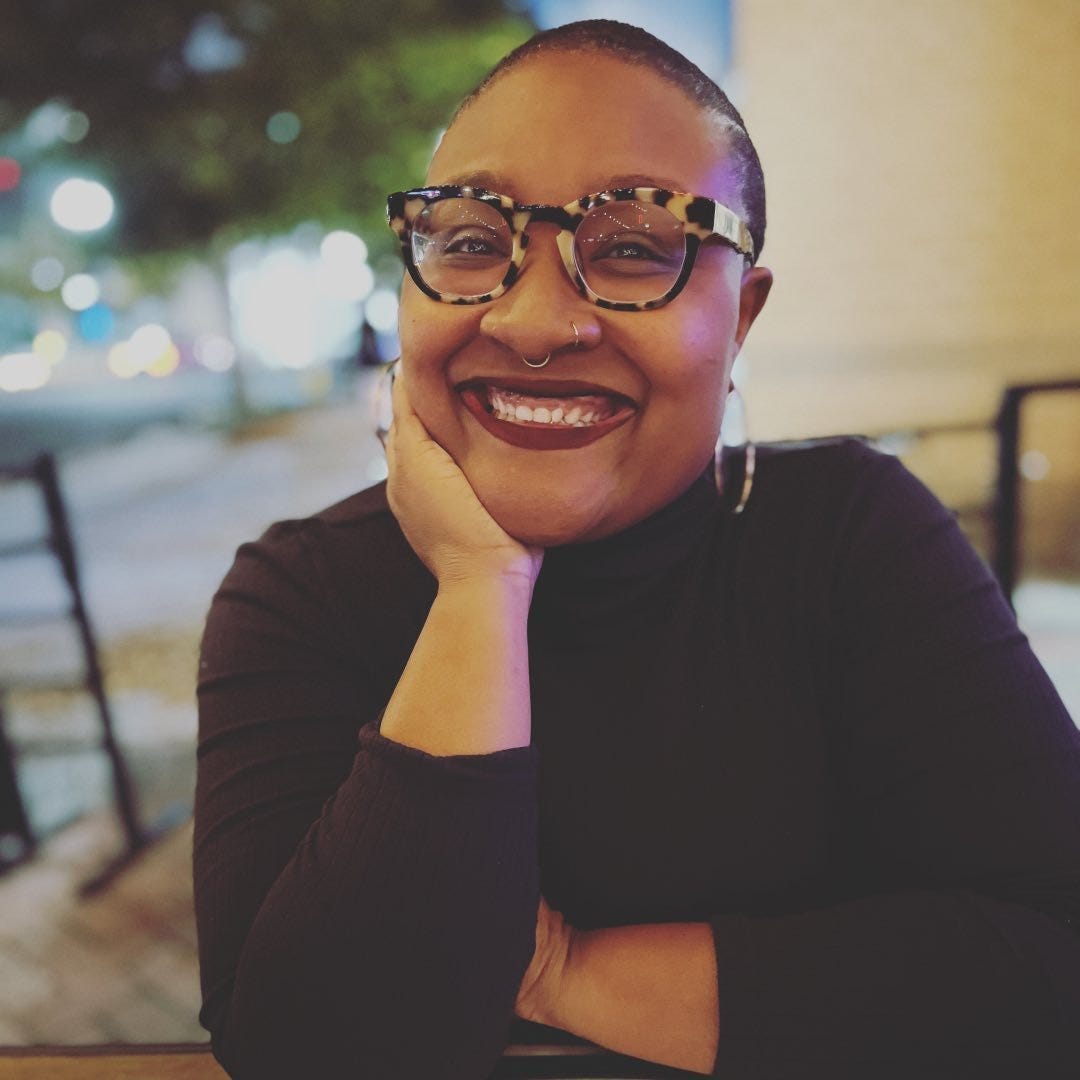Tips To Finish Your Dissertation
A guest post from Dr. Briana Barner
Publish Not Perish will now be published on Tuesdays and Thursdays. If you’d like to join a community of writers for support in achieving your writing goals, check out the PNP Writing Circle.
I wrote my dissertation in the throes of a global pandemic, a racial reckoning, while adjusting to becoming a mother of two small children and helping my kindergartener adjust to “Zoom school.”
Oh, and while also being on the job market. Fun times.
Even under far less stressful circumstances, writing a dissertation is a difficult endeavor. You’ve more than likely never written something like this before—dissertation writing is its own unique genre. You are writing to a specific audience—your dissertation committee—and outside of them, there will be very few people who will actually read it once you’ve defended it. But you need to complete it in order to finish your doctoral program, so it has to be done. So what are some tips to help you get through it? Glad you asked!*
When it gets tough—and it will—write your acknowledgments, and don’t forget to thank yourself.
No lie, I probably wrote about five versions of my acknowledgements before I finished my dissertation. At times, it was the only thing that kept me from quitting and giving up. Writing a dissertation can often be a very lonely and isolating experience, and it was especially so as I wrote during the pandemic. Writing my acknowledgements reminded me of the communities that were my support system, who offered so much encouragement throughout the process and cheered me on during my many low moments. Their faces reminded me of the importance of community and that, as a first-generation doctoral student, this degree had big implications for our community.
Thanking myself was also a way to acknowledge all that I had been through up until that point. I’ve written before about the stress and trauma that I endured during my program. Showing gratitude to myself was a reminder that what I had been through was not in vain, and it motivated me to keep going.
Give up whatever idea you had of a “perfect” dissertation. It doesn’t exist.
Whatever idea you have in your head about what a dissertation should look like, let it go. Treat the dissertation for what it is—a document that showcases the research project you’ve been working on throughout your doctoral program. It probably will not be your greatest work, and it doesn’t have to be. Relieve yourself of the pressure of perfection and focus instead on the journey to completion.
Be flexible.
During my dissertation writing journey, I made these very elaborate plans to complete my dissertation. It never failed—I would constantly have to change these plans, whether it be because of a missed deadline or because I underestimated how long it would take to complete one section before I could move onto the next. I had also just had a baby, which meant I was getting very little sleep and was exhausted. Life will life, and if nothing else, you can count on that happening no matter what stage you’re in. Once I surrendered to this, it was easier to acknowledge that changing my plans was part of the journey. I stopped internalizing this as being a failure and instead accepted that this was part of my writing process. I leaned into it and became a stronger writer.
Develop a ritual beforehand, even if it’s just lighting a candle. Taking time to set whatever mood you need can give you the jolt you need. Set writing intentions, even if they are “We are writing 1 sentence today.”
One day while scrolling through social media, I saw a professor’s post about their writing setup, and it included music and writing by candlelight. The setup was so simple, yet also romantic in a way. The simple act of adding that candle made the writing setup look so beautiful. I tried it one day and also experimented with using a diffuser. I had so much fun trying out different blends of essential oils. I began looking forward to this ritual, and in turn, I began looking forward to my writing sessions. This might look different for you. Experiment with different things. It could be trying out different coffee shops or maybe making yourself your favorite drink in your favorite cup.

I also took a few minutes to set writing intentions before my writing sessions. Yes, one day, I really did set the intention of “We are writing one sentence today,” and I did! Setting intentions helps to organize your thoughts around what you want to accomplish during that particular session. Setting writing intentions could also involve you exploring how you want to feel throughout the session. If writing brings up feelings of anxiety or self-deprecation, maybe explore this within your intentions. Write your intentions in ways that offer encouragement, love, and completion. Visualize yourself writing and finishing your tasks. Even if you don’t finish all your tasks, you’ve made progress, and setting your intentions helped to make that happen. Writing intentions also helped me get my writing juices flowing in a low-stakes way. I was able to get in the practice of writing without the pressure of it being words on the page towards completing my dissertation.
Remember that writing is mundane. Being consistent is boring, but it works.
The great Dr. Jenn McClearen told me this many times while I was writing my dissertation (she also writes about mundane writing here). It took me a while to understand what she meant. In my head, writing needed to be this great, big task, and I had to be in the perfect mood and environment in order for it to happen. Then the pandemic happened, and I quickly learned that writing indeed had to be mundane. There would be no perfect environment for me. Time was ticking away, and I needed to be finished, especially because there was so much uncertainty as the pandemic wore on. Being consistent is boring, but showing up for myself by writing my dissertation was not. As words began forming on the page, I saw the rewards of being consistent and showing up. I was rarely excited to show up for my writing sessions, and I allowed myself to acknowledge this. It was boring and uneventful. But as the world around me seemed to catch fire, boring and uneventful was exactly what I needed, and those writing sessions became the stability that I looked forward to.
Build a playlist of songs that motivate you, get you lit, encourage you, and make you feel good. Build a playlist that could be played before, during, and after your defense. Always visualizing.
Before I even finished my dissertation, I created two different playlists: one that I could write to, and one that I imagined would be played during my dissertation defense. The writing playlist had a variety of songs on it, including “The Skies Will Break” by Corrinne Bailey Rae. The lyrics to that song that really resonated with me are: “The skies will break for you, my friend/It won’t be long until it ends.” I held onto those lyrics, especially during the last few months of writing my dissertation and while I was still on the job market. I wasn’t sure what the results would be of my dissertation defense or of the job market, but I believed that “it won’t be long until it ends.” Listening to the writing playlist became part of my writing setup routine: lighting the candle, mixing the essential oil blends for my diffuser, setting my intentions, all while listening to my writing playlist. I have very vivid memories of doing this day after day, at the crack of dawn, often with my newborn sleeping on my chest.

Due to the pandemic, I had a virtual dissertation defense. Since we were on Zoom, this meant that I could invite my community—the same people who lived on those acknowledgement pages that I rewrote over and over again. Being on Zoom also meant that I could play music while the committee deliberated. So the playlist that I had made months before blared through my computer speakers and made the defense feel like a party. There was lots of Beyonce and other songs that made me feel good and in a celebratory mood even before the defense was over. I truly believe in the power of visualizing and speaking things as though they already were, and creating these playlists was yet another way that I set my intentions to complete my dissertation and to do so in community, even as a pandemic raged on.
You can write a diss with your caregiving responsibilities. Do not compare yourself to others, especially if they are not also caregivers. You are on a different schedule, which is fine.
When I started my graduate program, I had a toddler. By the time I finished, I had two small children and was pregnant with my third child. I did coursework as a mother, defended my proposal as a mother, and defended my dissertation with my oldest child watching.
You can write a dissertation with your caregiving responsibilities.
Being a mom to small children often meant that I was writing my dissertation early in the morning, before my children woke up. By 6 a.m., I was done writing and moving on to getting my kids ready for school. It was beyond tough, especially because neither of my children were sleeping through the night. I was often writing while getting very little sleep, which made it hard to concentrate and often meant I took a lot longer to write. But this is where being flexible is key. I had to change my deadlines many times to allow myself some mornings to sleep in instead of forcing myself to write.

This brings me to my next point—caregivers are on a completely different schedule. This is not to say that grad students without these same responsibilities have an ample amount of free time to write to their heart’s content. What I am instead acknowledging is that we have much less flexibility, and our schedules are usually rarely our own. We are juggling so many things, and that can mean that it may take us longer to finish. But we will. You will. Do not compare yourself to others.
I often had 15 minutes of free time and had to get through a quick task. I had a hard time jumping from one task to the next, but it had to be done, especially once the lockdown happened and my son needed help with Zoom school. Academia is not a forgiving place for those with caregiving responsibilities, so you will have to reimagine what your ideal schedule will look like. But whether it’s getting up super early, staying up super late, or even taking off a day of work to get that chapter finished, you do what you have to do.
Remember the journey.
The most important thing to remember is that your dissertation is about more than just finishing. It really is about the journey. Take the time to really appreciate it. You are doing such important work, and this space and time will not be repeated. You will learn so much about yourself in this process, and most importantly, the skies will break for you, my friend.
*These tips were previously published as a Twitter thread.
Dr. Briana Barner is an assistant professor in the Department of Communication at the University of Maryland. She received a doctorate in Radio-Television-Film and a doctoral portfolio in Women’s and Gender Studies from the University of Texas. Briana also earned a Master’s in Women’s and Gender Studies from UT. She is an interdisciplinary critical and cultural communications scholar with research interests in Black podcasts, digital and Black feminism, digital media, social media as a tool for social justice and activism and the representation of marginalized people, specifically Black girls and women, in popular culture and media.
Read Dr. Barner’s other PNP post:
The Postdoc Journey: A Space For Radical Reflection
I applied for a postdoc at the height of the pandemic, while recovering from giving birth and helping my then five-year-old navigate “Zoom school,” all while writing a dissertation. I was beyond exhausted. I was defeated and questioned whether pursuing an academic career during so much uncertainty made any sense at all.






Great tips. As a father of three, I cannot imagine writing a dissertation with children -- search committees ought to take serious note of the competence that juggling those two huge responsibilities implies. I wrote my dissertation very quickly using a variation of your methods, but I was single and in my late 20s. The importance of rituals, of grinding away at each stage regardless of how inspired you feel, has got to be even more essential with family responsibilities.
My metaphor for dissertation writing is that it's like cleaning out a cluttered basement. The task seems insurmountable at first glance, but the only way through it is box by box. I might also add, at the risk of being too windy, that a lot of work can be saved in the planning stage, both in the writing and in the adaptation of the dissertation into a book proposal. Too many of my peers began with a general idea and then got mired in messy drafts. Or they wrote an adequate dissertation for graduation that had fatal flaws as a book project. If you have a clear map for the diss, it's much easier to stick to those routines, because the end goal never wavers.
Thanks for sharing this!
So thrilled to read this post from Dr. Barner! This guidance is excellent.